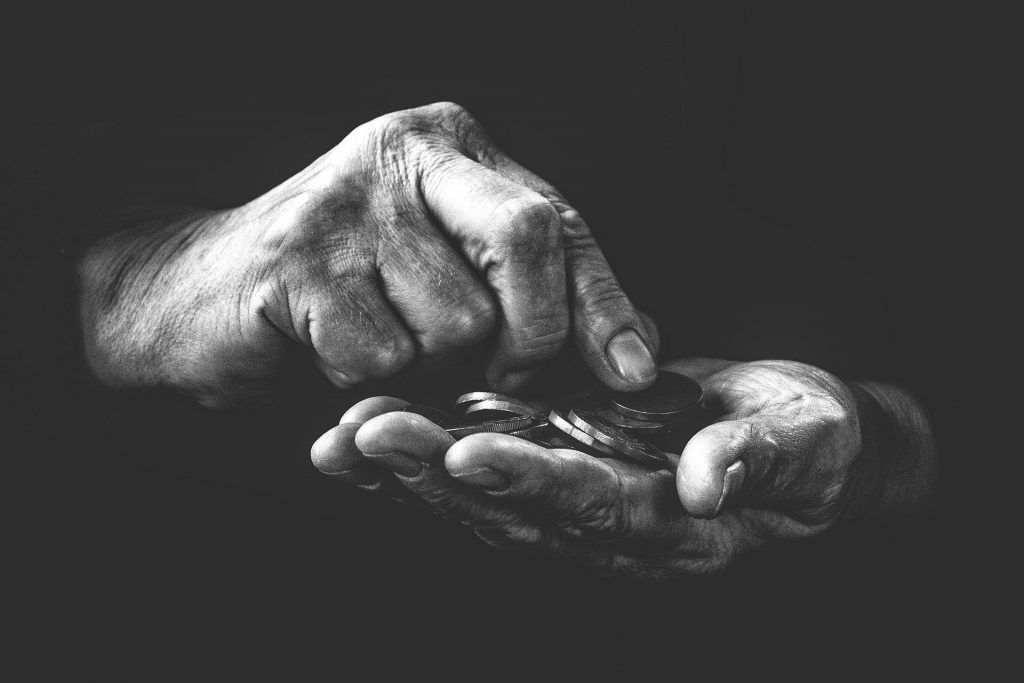Last Updated on May 29, 2022
Contents
Saving Money For An Apartment
Have you just left the nest to rent a place, or are you looking forward to buying an apartment this year? It would help if you put some money aside for this big step. We have many articles that can help you save money to fund your move, whether you’re looking at saving money on taxes or saving in general.
But you’re probably wondering, how much money should I save for an apartment? There is no standard answer. The amount depends on various factors, such as the property’s size and location. What should you consider before buying or renting an apartment? Learn here. We’ll also walk you through several budgeting strategies.
How much Money Should I Save for an Apartment in 2022?
Whether you’re buying or renting, you need to understand whether or not you can afford an apartment. It comes down to a simple calculation.
It would be best if you considered your gross monthly income before anything. The total amount you spend on housing shouldn’t exceed 30% of your income. Whether you rent a property or pay a mortgage, this is a good rule of thumb. The remaining 70% should suffice for the rest of your expenses, necessities, and wants.
Here is an example.
|
Budget strategy |
Budget amount |
|---|---|
|
Gross monthly income |
$6,500 |
|
Monthly housing expenses |
$1950 |
|
Remaining budget |
$4,550 |
After making this similar calculation for yourself, stay within your set budget while shopping. Your budget will thank you for it!
Renting an Apartment
If possible, look for an apartment that includes utilities in the rent price to make your life easier. Then, you’ll know exactly how much of your budget will go toward housing expenses. If you can’t find this option, ask some preliminary questions before you rent it, such as:
- How much is the average electricity and water bill?
- How much does heating cost in winter?
- Is there air conditioning? How much does it cost in summer?
- Are there other monthly expenses related to the apartment or building? These may include administration, garbage pickup, and pest control fees.
Another expense to consider if you plan to rent an apartment is the security deposit. The deposit usually amounts to one month’s rent or more. Make sure you have this money, preferably before you start looking for apartments.
Put money aside in a separate savings account. You can save 25% of the sum due for that mortgage or rent. Add these savings to your list. You will realize if you’re still within the 30% budget limit.
Also, remember that you’ll have to pay your broker if you use this service. Broker’s fees usually amount to another month’s rent. Finally, there are other costs, such as renter’s insurance. It usually costs around $20 per month, but it will add to the total housing bill. Include it on the list of expenses to keep your budget accurate.

Buying an Apartment
Buying an apartment is far more challenging than renting. First, you need to have a down payment for the property. You have to pay a percentage of the apartment’s price.
The down payment will also depend on the type of loan you get for your new home. You need to have at least 3% for conventional loans, ideally even more. Yet, there are different lender requirements you might also have to meet. For example, if you have a bad credit score, your lender might ask for a larger down payment.
Most buyers prefer a larger down payment to the minimum amount. According to National Association of Realtors statistics, buyers under 30 pay around 6%. Those aged above usually pay around 12%. You need this money before you apply for a mortgage. We’ll soon look into budgeting strategies to save money for down payments. A few general rules to manage this include:
- Put money in a separate savings account each month.
- Pay all your bills and taxes promptly to avoid penalties
- Avoid making new loans while saving for a down payment.
- Fix your credit score to be more likely to get a good loan.
- Try living within your means without making unnecessary expenses.
How to Make Sure You Can Afford an Apartment in The First Place
Consider the 30% gross income rule for your housing expenses. This way, you’ll realize if it’s the right time to move out or buy an apartment. On the other hand, if your rent or mortgage plus monthly bills exceed 30% of your budget, you might want to wait until a property fits in your budget.
Does moving into a new place coincide with getting a new job? Then, use the 30% rule while negotiating your salary. Suppose the amount your future employer offers doesn’t allow you to cover the 30%. In that case, try to renegotiate, look for other employment opportunities, or live with your parents or a roommate until you are financially prepared.
If you cannot afford an apartment yet, there are alternatives:
- You can move in with a roommate, allowing you to split the rent and utility bills in two. Meanwhile, you can save money to live independently.
- Move to a less central area. Living in the city center or close to your job can be convenient and expensive. Living on the outskirts or further from your job can cost less. Make sure to include the transportation cost when you draw the line.
- Rent or buy a smaller property. Then, upgrade your housing once you have more money.
- Buy an apartment and rent one of its rooms. Renting is a great solution, especially for single people. If you have a 2-room apartment, you can get a roommate. The money you get will help you pay the mortgage. Another convenient alternative is renting an extra room through services like Airbnb. That way, it will also enable you to enjoy some alone time in your new home.
How Much Money Can I Save for an Apartment by Budgeting?
Budgeting is not easy, especially if you’re not in the habit of managing your finances. Not budgeting is one of the main reasons why you can’t save money for an apartment.
Moving into a new property is a great responsibility, whether you rent or buy. Having a mortgage on your shoulders and credit card or student loan debt can be overwhelming. For this reason, it is all the more essential to organize your budget. Make sure you pay your debts and bills before spending on non-essentials.
Proper budgeting will allow you to create a financial plan that keeps you from overspending. It will also help you avoid more drastic consequences such as:
- Not being able to pay your mortgage
- Getting new loans
- Breaking your lease contract
- Giving up your apartment
All these undesirable consequences can also create problems in your future. For example, your credit score can suffer if you break your lease contract.
The same happens if you get too many loans because you can’t afford your new housing. At the same time, you’ll have to fix your credit as fast as you can for a new loan. It can be impossible if you’re coping with too much debt. To avoid this vicious circle, organize your monthly budget and make sure you live within your means.
If you’re wondering how to save money for an apartment by budgeting, this strategy comes down to a few simple steps:
- Determine your monthly income.
- Calculate your fixed monthly expenses (mortgage or rent, utility bills, gas, subscriptions).
- Subtract the monthly expenses from your income to see how much money you have left.
- Make a secondary list of the rest of your expenses (food, clothes, entertainment, etc.).
- Cut down on some of the expenses in item 4 that drain your budget.
- Put money aside to save for your future apartment rent or mortgage.
An excellent strategy to make and follow a strict budget is the digital budgeting envelope system. It involves dividing your expenses by category. First, assign a strict budget to each (in a digital envelope). Then, use that budget for that particular spending each month. Here is a concrete example:
|
Expenses |
% Of your budget |
|---|---|
|
Housing expenses |
30% |
|
Grocery |
30% |
|
Gas |
15% |
|
Loans |
10% |
|
Subscriptions |
5% |
|
Other expenses |
5% |
|
Savings |
5% |
Start budgeting on paper. It is all about calculating and writing down numbers. Doing mental math might not work, and it probably won’t help you keep an accurate budget. Writing it down and referring back to it is a great way to visualize, memorize, and stick to your plan. Different banking tools and apps help you implement this system, like YNAB or Mvelopes.

What to Pay Attention to When Budgeting
When budgeting for an apartment, first of all, you have to be realistic. If this is your first time, don’t underestimate your expenses. If you’re not sure what your monthly payments amount to, do some research. Maybe it’s the first time you have lived apart from your parents. You’re not entirely sure how much you’ll spend on groceries alone.
Go shopping once, twice, and see how much you spend on groceries. Do the same for gas if you’ve started a new job and you have to commute.
Next, consider monthly subscriptions, loans, and any other recurrent payments. Write them down, and you’ll realize how much money you can count on each month for your needs and wants. A well-known budgeting strategy based on these two categories is the 50-30-20 method.
Frequently Asked Questions (FAQs)
How to Save Money for an Apartment while Paying Rent?
If you’re currently renting an apartment but plan on buying one, you need to put money aside. You’ll need at least 3-6% for the down payment. The more you have, the better because your loan will be smaller. To save money while paying rent, consider one of the following strategies:
- Moving to a cheaper home.
- Moving in with someone else to split the rent and utility bills.
- Moving back to your parents’ place.
- Cutting down on your living expenses.
What to Look for When Searching for a New Apartment?
It depends on what you want and what you can afford. Look for an apartment in a central area to prevent you from spending on commuting to and from work.
The utility bills for the property are also essential. They can quickly drain your budget. Whether you rent or buy an apartment, make sure you understand the cost of your future utility bills. Your housing expenses should take around 30% of your budget tops.
Is it Possible to Save Money for An Apartment by Cutting Down on Your Bills?
Paying less on your bills is a great way to save more money. First, make sure you avoid past-due utility bills. The half-payment method can help you out. This strategy involves using a part of each paycheck for these payments.
Then, adjust your lifestyle to save money on bills. For example, avoid leaving the TV and appliances on, use economic light bulbs, replace the AC with ceiling fans, and use cold water.
How Much Money Should I Save for an Apartment?
Usually, you should save at least three months’ income before moving into a new apartment, considering all the additional rental costs (deposit, broker’s fee, etc.). If you buy an apartment instead, consider repairs, furniture, decorations, etc., to ensure that you have all costs covered.
